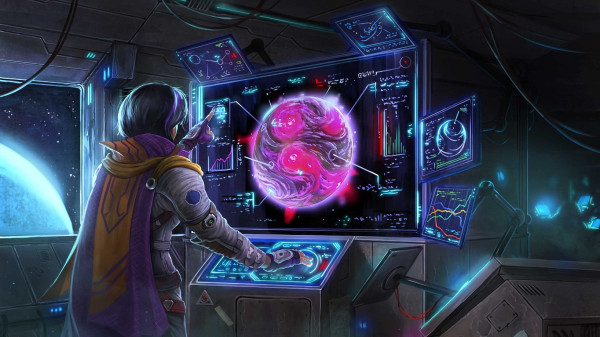
Ok, so you want to log in online and play the best tabletop RPG ever invented- but how? It’s more than just finding a server on your PC. Running a D&D campaign takes organization, planning, and social skills. But don’t worry! Here’s how an expert goes about setting up the most epic Dungeons and Dragons campaign ever- without ever leaving the house.
1. Find The Right Group of People
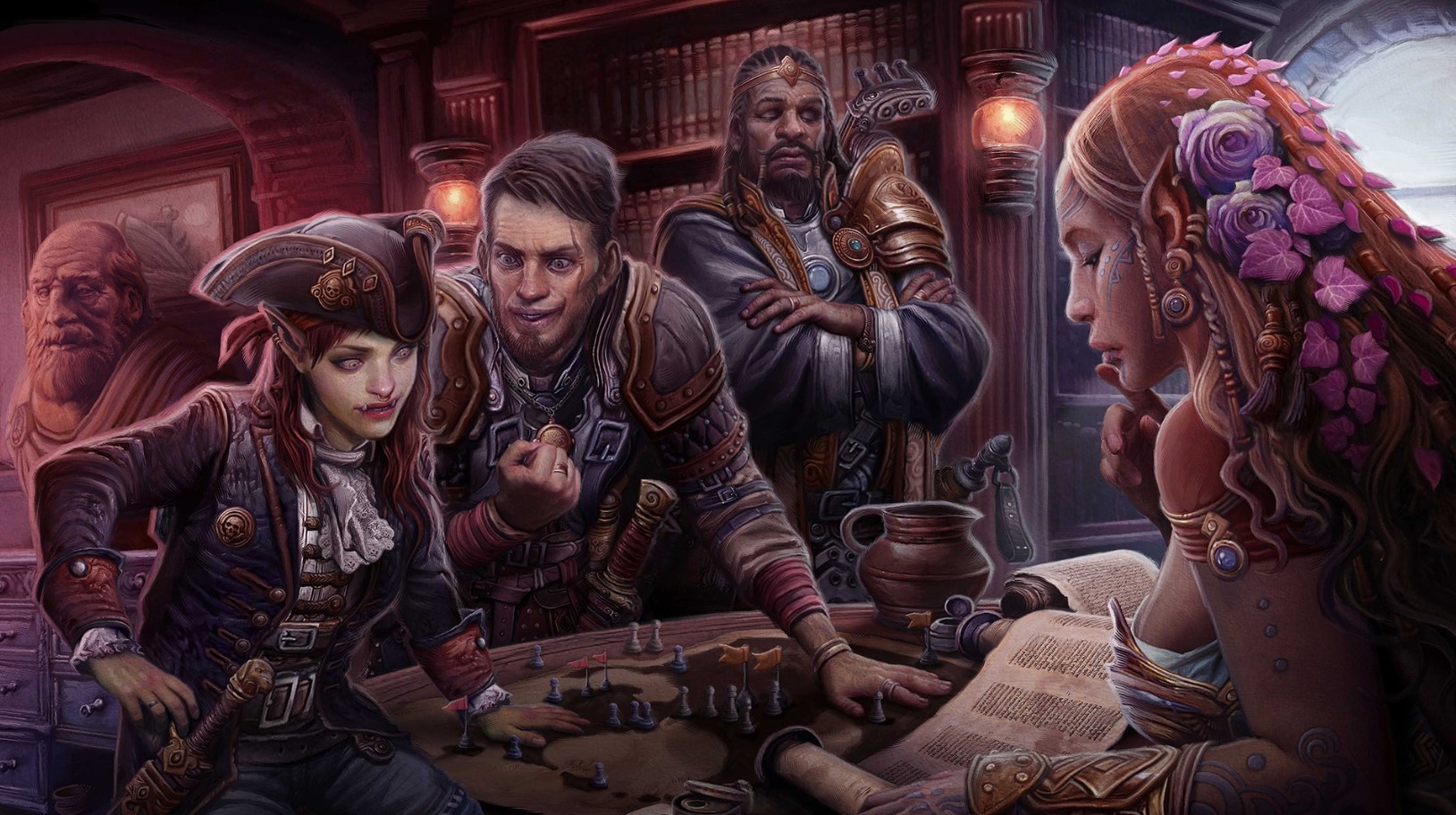
A party plots their next escapade at the local tavern
D&D is a team sport. And it’s not the kind where every player passes the ball to Kobe, who scores all the touchdowns (sorry, not a sports guy.)
D&D requires that you have a compatible group of people that all have the same goal in mind. Ideally, you would mostly have similar interests and background, compatible schedules, and a generally friendly vibe. Without a compatible group of people, you’ll be left with endless schedule conflicts and maybe even an uncomfortable in-game dynamic.
So take the time to ask around your social circle and online places that you frequent- who wants to be part of our D&D campaign? You might be surprised by how many replies you get.
2. Have a Good Dungeon Master
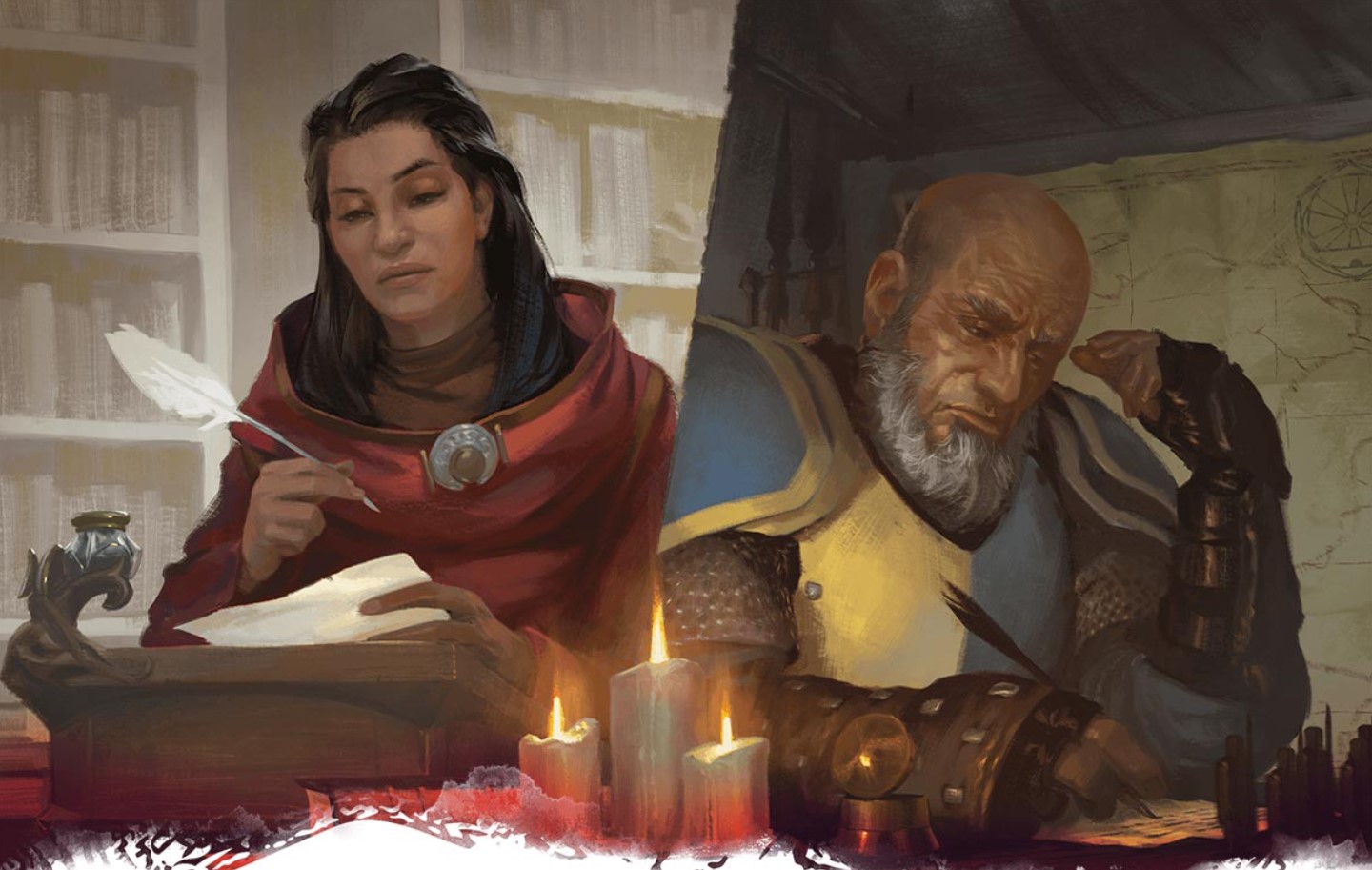
A good Dungeon Master is the difference between a campaign where players can’t wait for the next session and a boring, uncomfortable one that fizzles out after the first month.
Good Dungeons Masters know to start simple and set expectations. They know that D&D is a complex game, and that players won’t be ready to tackle every aspect of it right away. They know how to make the game intriguing without being overwhelming.
Good Dungeon Masters know how to keep the gang focused by avoiding distractions and use the tools as their disposal to provide the best experience they can for their players. Good DM’s might be part of the DM’s Guild, allowing them to get access to key source materials, maps, and modules.
3. Help Your Players Be Their Best
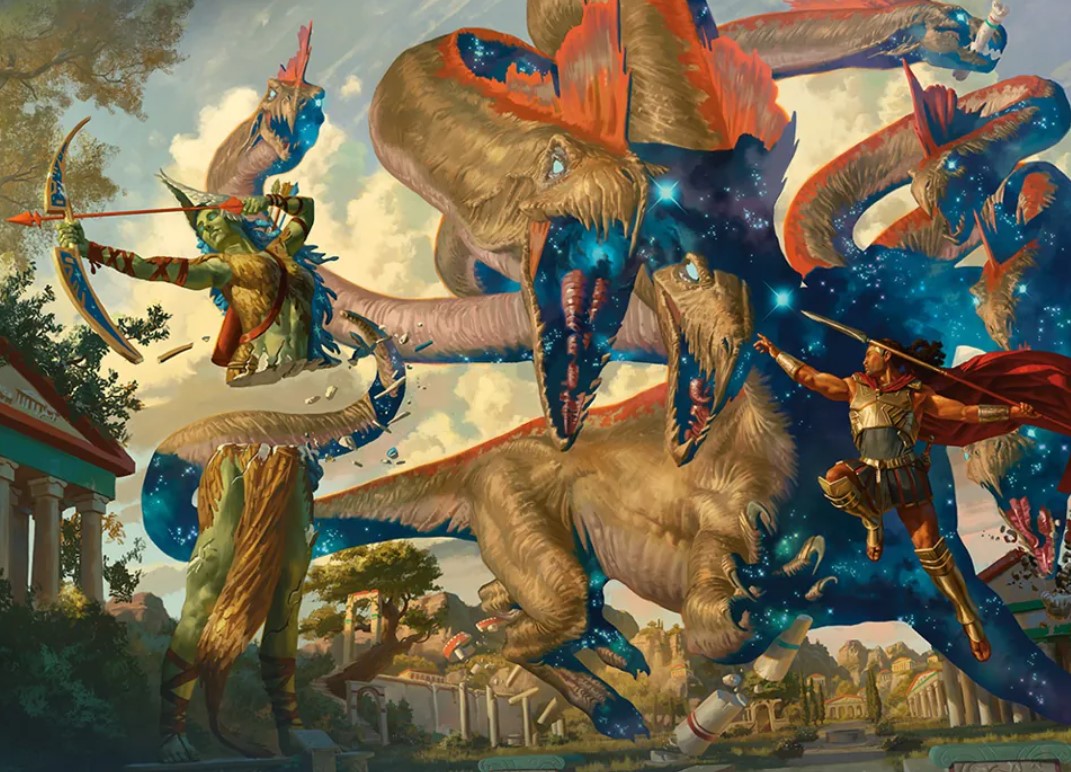
Did you say, an ASTRAL hydra?
Even if you’re not in charge of the session, it’s your responsibility to make sure you’re contributing to the game. One bad personality can make other players feel uncomfortable or disrupt the flow of the game. Do what you can to make sure that you and your fellow players are contributing to the atmosphere of the game, not taking away from it.
Always show up early, or at least on time. The bane of every D&D campaign, online or not, is missing persons. It’s difficult to run an immersive, realistic game when the party warlock plane shifts in and out of existence every game session without explanation. So don’t keep your fellow gamer’s waiting- show up on time.
Don’t let distractions rule your gaming experience. Sure, it’s fun to get some comic relief from a relevant meme or catch up on your text messages. But it’s not fair to the other players if you’re slowing down the game with distractions. Remember to play well with others. Dungeons and Dragons is about real people coming together to do something fun. Try to be patient and kind with others- for some people, this is the only part of their week that is stress-free!
4. Stay organized
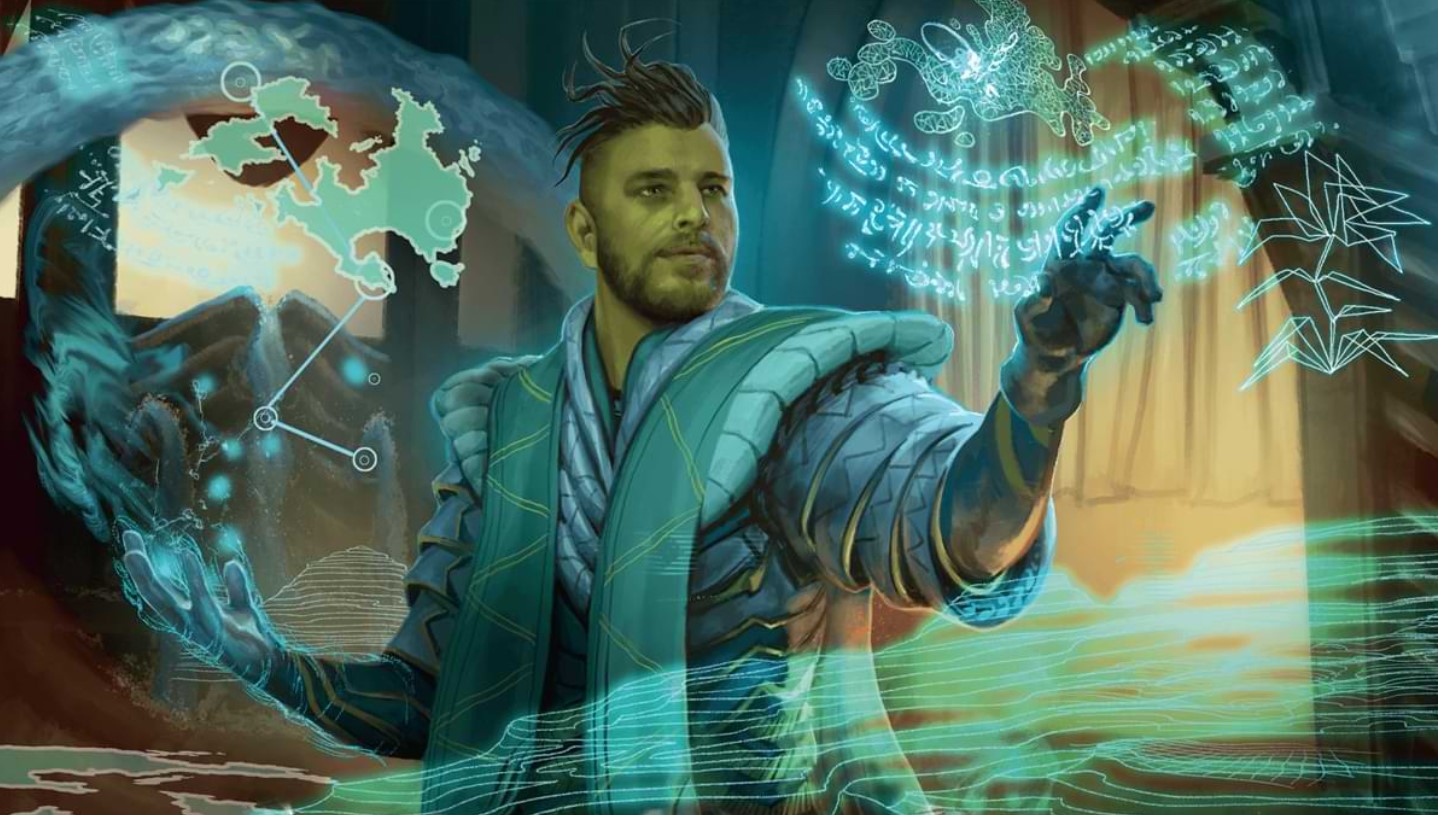
Online Dungeons and Dragons comes with its perks and challenges. You will have access to the entire world of digital data on the internet. However, if you don’t have that data organized in a way you can understand, you might be left grasping for straws while your fellow players wait.
Get shared Google Docs together for your character sheets, campaign notes, world maps, and more. You want everyone to be able to have full access to everything they would on a tabletop setup.
All of the players, not just the Dungeon Master, need to have access to the sourcebooks so that they can look up specific rules, items, and abilities. Luckily, WotC has made the core materials available online for free in 5E, so head over to D&D Beyond and get access to a one-stop-shop for all the official D&D materials you need to keep your online campaign organized.
5. Choose Your Video Chat Platform
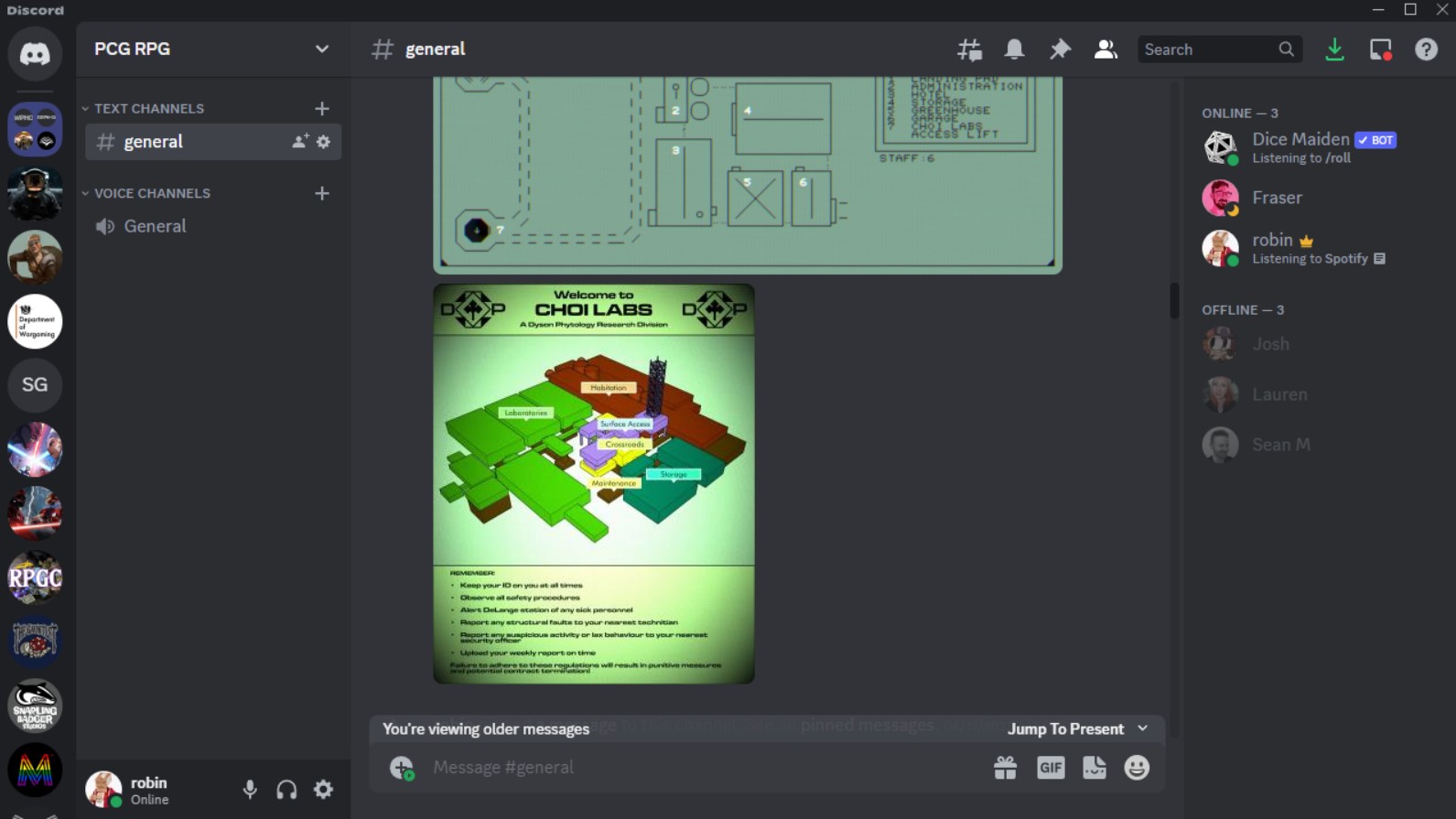
A discord server equipped to run D&D
Even though you’re not playing face-to-face, you still want to be able to see other players(or at least hear them.) There is a myriad of options like Zoom, Google Meets, FB messenger, and Skype that act as a video chatting platform.
One that stands out, however, is Discord. On Discord, you can make your own server where you text chat, send images, voice chat, and video chat all in the same place. Additionally, you can add bots that give you powerful tools to enhance your game.
One thing you will need is a virtual dice program. It’s simply too much of a temptation to allow players to roll their own dice in person. Discord has programs like Avrea that allow players to make random dice rolls for everyone to see.
6. Choose a Great Virtual Tabletop
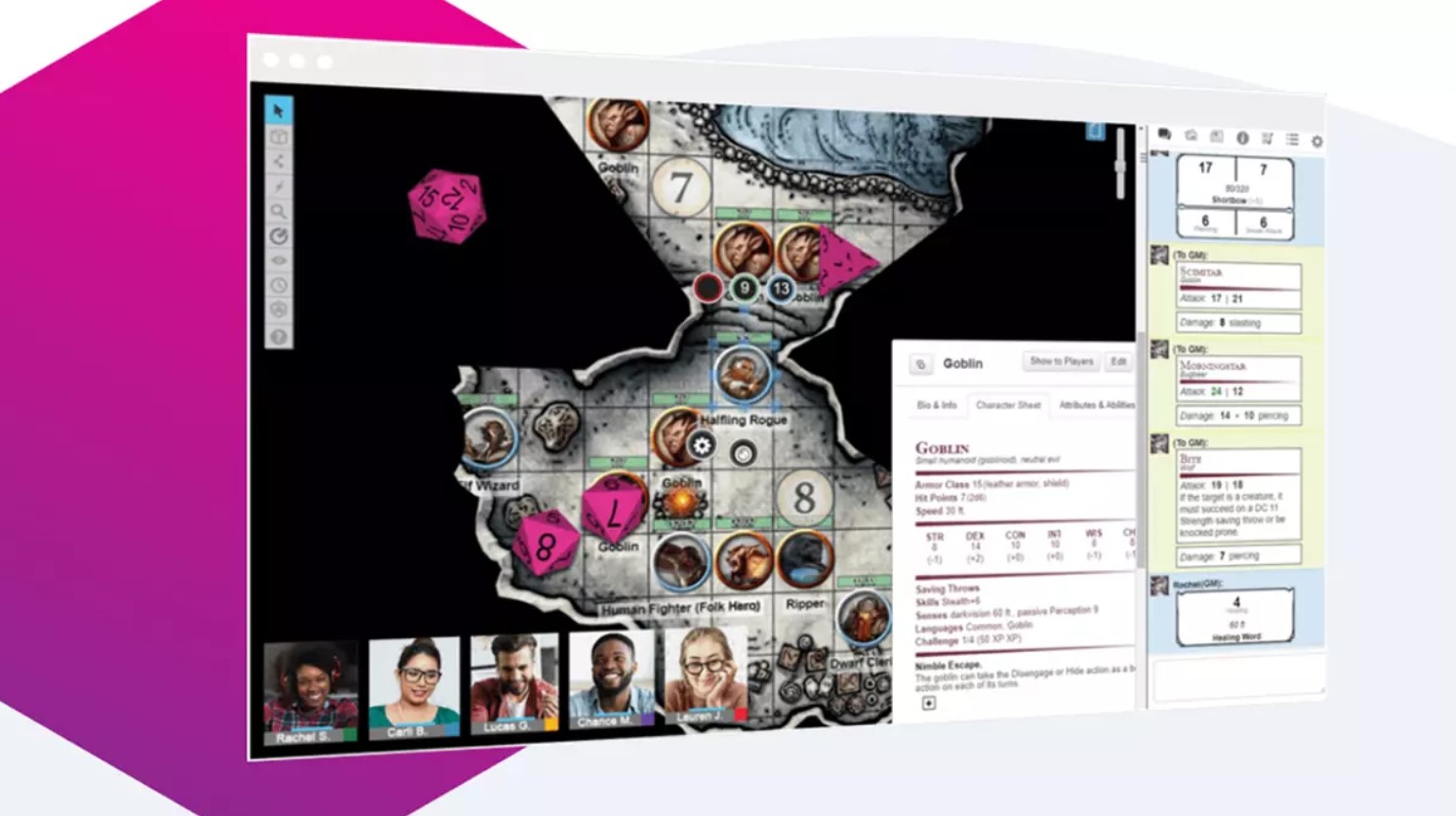
It's almost like being in front of a real table with your friends
Though it’s not completely necessary, there’s no arguing with the fact that using a virtual tabletop can elevate your campaign to an entirely different level. If you’re interested in getting down to the nitty-gritty of miniature-based combat, this is a must have. Plus it gives you a visual representation of the action unfolding in the game.
You’ll find a plethora of paid and free options that can meet the specific needs of your playstyle and environment. Roll20 and Foundry are a couple of the industry leaders in this area. I highly recommend checking them out due to their wide adaptability and ease of use.
Fantasy Grounds, Owlbear Rodeo, and more are great choices. Remember to take into consideration price, functionality, and ease of use when selecting the best virtual tabletop.
7. Play Well With Others
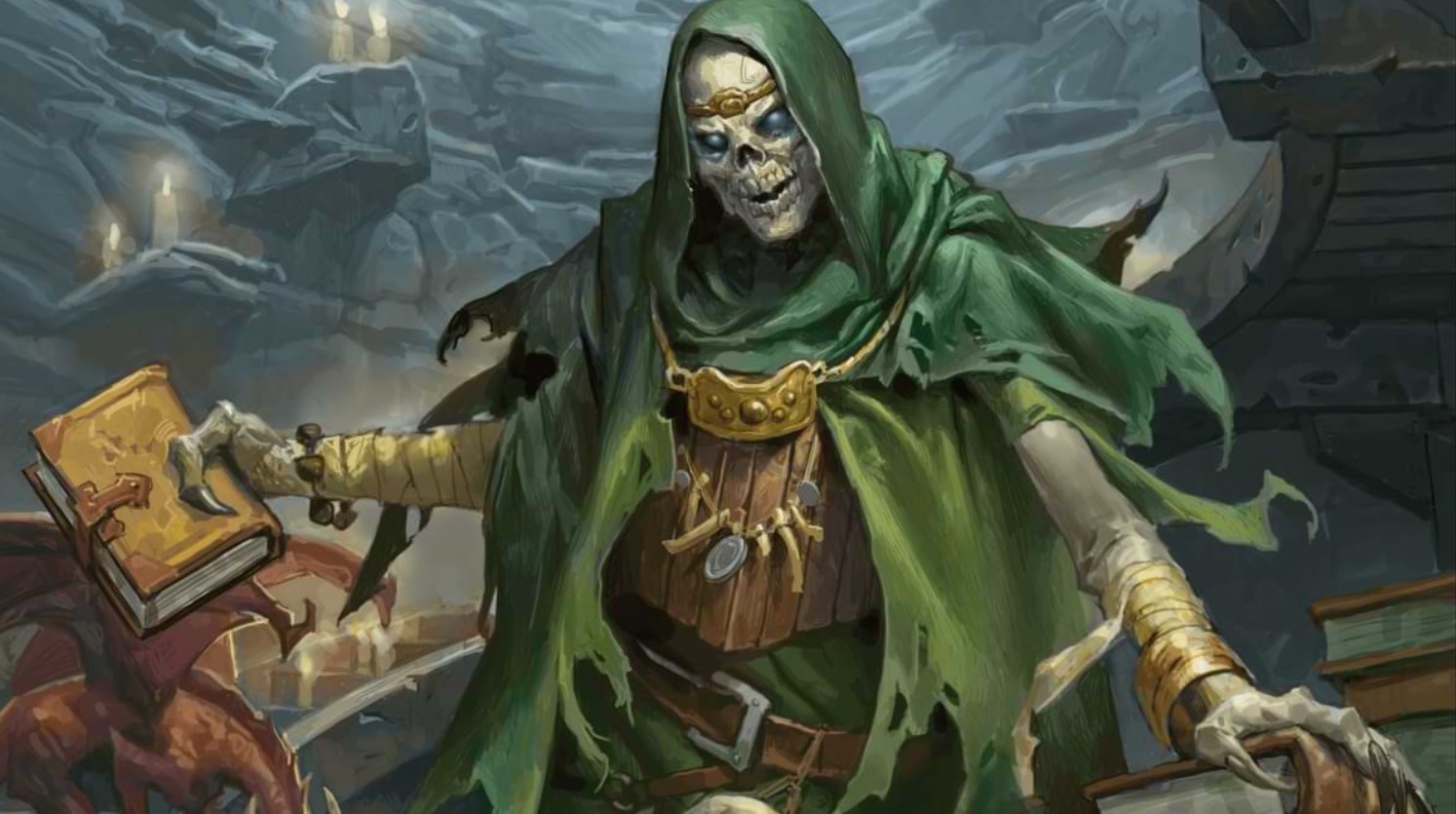
Liches usually don't make great PC's.
I’ve mentioned this before, but it bears repeating. If there’s one thing that can kill a D&D campaign, it’s personality conflicts. Dungeons and Dragons attracts creative, eccentric people that don’t always get along. So remember to take one for the team and make your fellow gamers feel happy and welcome.
One of my favorite tools to make players feel heard and appreciated as a Dungeon Master is the “Yes, but…” rule. Players will ask crazy things of the Dungeon Master such as, “Can I get a +5 vorpal flaming greatsword? Like, because of my backstory?” or, “I want to jump down from above and deal extra damage to the giant.”
A great way to deal with requests is saying, “Yes, but…” For example, “Yes, you can get your Flaming Heritage Greatsword, but you have to earn it. The sword’s locations and whereabouts have been lost with time. All you have is a tarnished scrap of parchment with a strange name and a distant location scribbled in ancient ink.” Or, “Yes you can attack the giant from above, but you have to roll a DEX check. If you succeed, you’ll attack with advantage. If you fail and blunder, you’ll attack with disadvantage.”
8. Try Using Pre-Made Campaigns and Modules
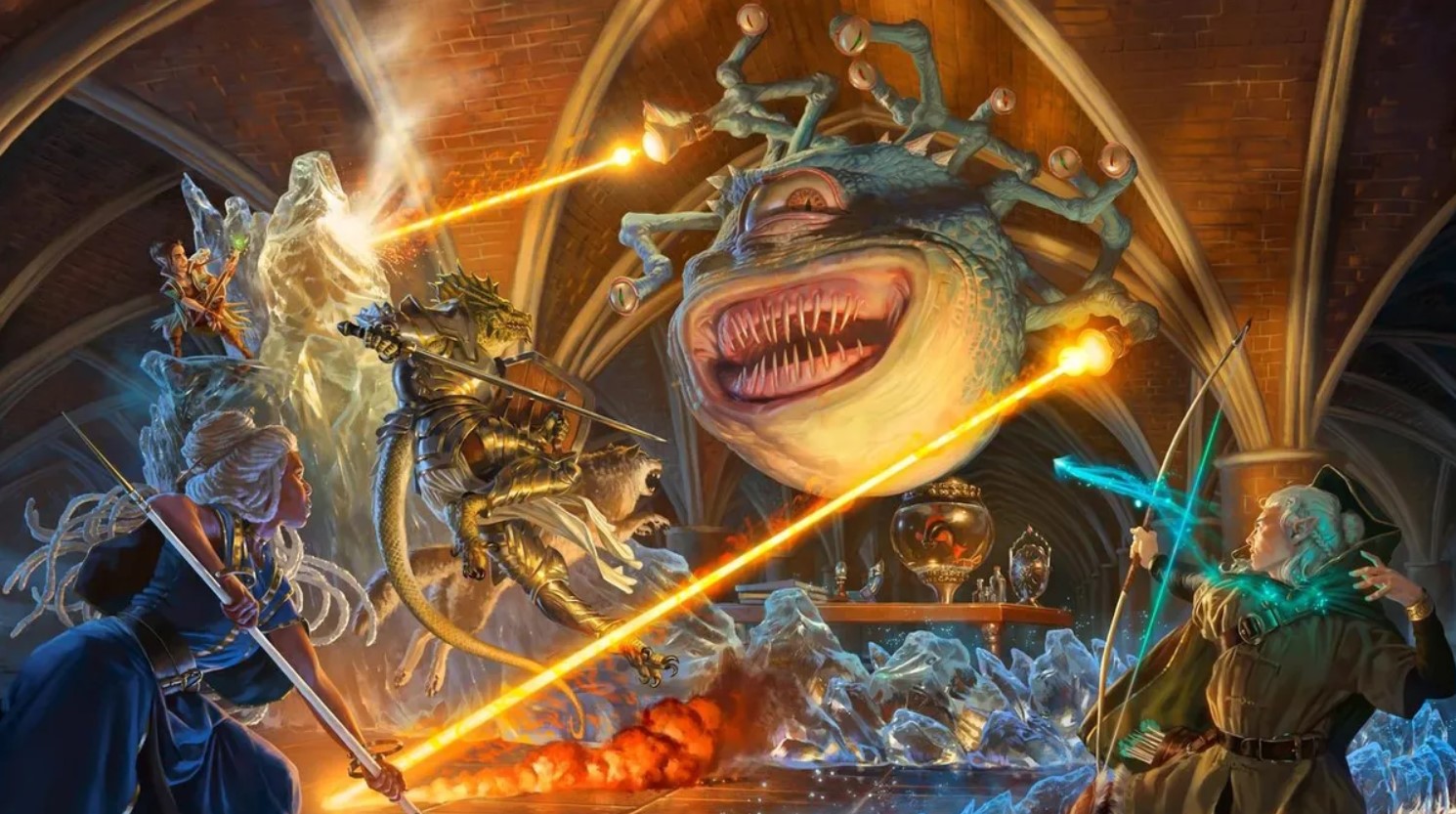
Beauty is in the eye of the Beholder. I named my sword Beauty.
One of the best things about playing Dungeons and Dragons is that there is just so much information out there. Between the official WotC materials, 3rd party environments like Forgotten Realms, and homebrew material on forums like Reddit, you’ll find no shortage of adventures to unleash upon your players.
Before you launch into a huge campaign story arc, consider getting your players’ feet wet with an introduction module. Use this as a chance to make the party comfortable with the idea of working together and introduce important characters that you plan on bringing back later. You can snag a ready-to-go module online even if you only have a couple hours before the session starts.
You can even find updated versions of old-school adventures like Tomb of Horrors!. You’d be surprised by how helpful it is to have a slew of ready-made NPC’s, locations, and plot events ready to make your world feel like an immersive hollywood movie.
9. Shorter Sessions
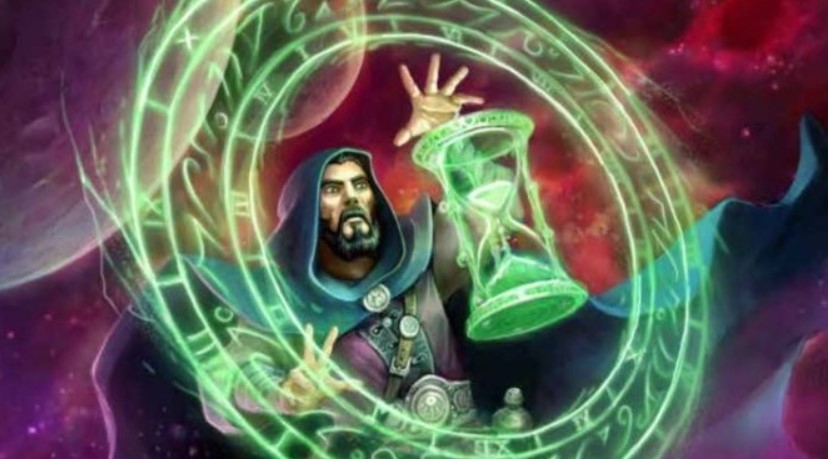
Even the most powerful magic users can only stop time for a short while
One disadvantage of playing online is that your team might not be down for all night caffeine-driven marathon gaming sessions. Don’t worry, because with the ease of online platforms, it’s not difficult to bring people together two or even three times a week.
Consider breaking your games down into shorter sessions of 2-3 hours. This cuts down on distractions and keeps everyone focused and engaged while you’re in game.
Discuss this in a group text with your players. Does everyone want to have a huge Saturday night session? Or maybe a couple afternoon sessions throughout the week? The advantage of online D&D is convenience and flexibility- so use it.
10. Remember To Have Fun
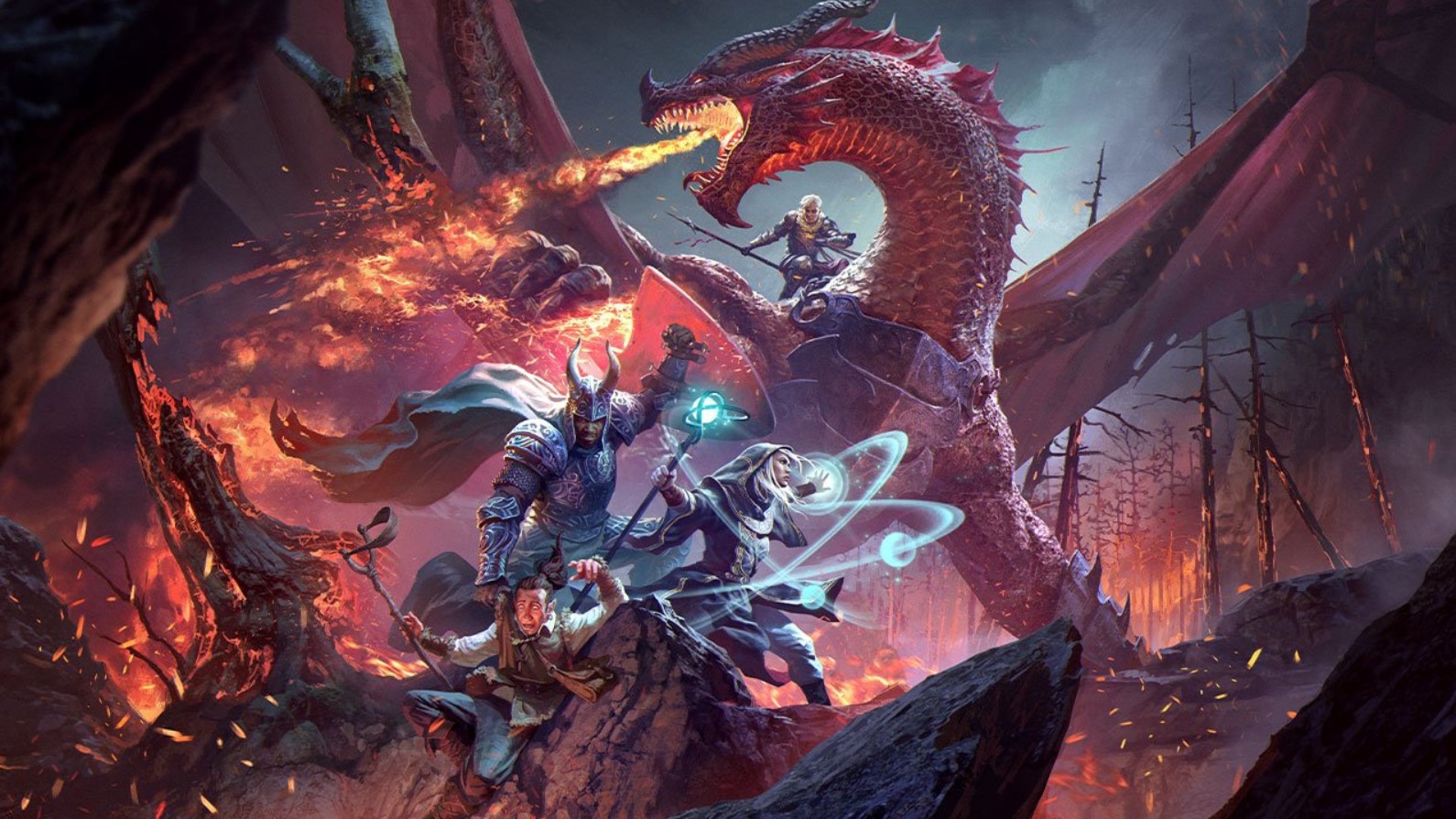
Who's ready to face off against some dragons?
With all the small details to keep track of, it’s easy to forget the big picture. We have the opportunity to experience one of the coolest, most fantastic gaming experiences ever invented with our friends.
Remember that D&D isn’t about crunching numbers and arguing over miniatures. It isn’t about fancy online tools or who gets the best piece of loot. Dungeons and Dragons is, at its core, about people. It’s a way for gamers to get together and have unforgettable experiences using the high fantasy roleplaying environment as a backdrop for their group experience.
Gamers have celebrated D&D for more than 50 years. Now, with the digital world and its tools, it’s easier than ever to bring people together to play this epic game. Keep that excitement alive and you’ll be sure to inspire your fellow players to have a great campaign together.
